Jeep Cherokee (XJ): Ignition coil-4.0L engine. Crankshaft position (CKP) sensor. Camshaft position sensor-2.5L engine
REMOVAL A one-piece coil rail assembly containing three
individual coils is used on the 4.0L engine (Fig. 21).
The coil rail must be replaced as one assembly. The
bottom of the coil is equipped with 6 individual rubber
boots (Fig. 21) to seal the 6 spark plugs to the
coil. Inside each rubber boot is a spring. The spring
is used for an electrical contact between the coil and
the top of the spark plug. These rubber boots and
springs are a permanent part of the coil and are not
serviced separately.
(1) Disconnect negative battery cable at battery.
(2) The coil is bolted directly to the cylinder head.
Remove 4 coil mounting bolts (Fig. 22).
(3) Carefully pry up coil assembly from spark
plugs. Do this by prying alternately at each end of
coil until rubber boots have disengaged from all
spark plugs. If boots will not release from spark
plugs, use a commercially available spark plug boot
removal tool. Twist and loosen a few boots from a few
spark plugs to help remove coil.
(4) After coil has cleared spark plugs, position coil
for access to primary electrical connector. Disconnect
connector from coil by pushing slide tab outwards to
right side of vehicle (Fig. 23). After slide tab has been
positioned outwards, push in on secondary release
lock (Fig. 23) on side of connector and pull connector
from coil.
(5) Remove coil from vehicle.
1 - CYL. #6
1 - COIL RAIL
1 - REAR OF VALVE COVER INSTALLATION (1) Position ignition coil rubber boots to all spark
plugs. Push down on coil assembly until bolt bases
have contacted cylinder head
(2) Install 4 coil mounting bolts. Loosely tighten 4
bolts just enough to allow bolt bases to contact cylinder
head. Do a final tightening of each bolt in steps
down to 29 N·m (250 in. lbs.) torque. Do not apply
full torque to any bolt first.
(3) Connect engine harness connector to coil by
snapping into position. Move slide tab towards
engine (Fig. 23) for a positive lock.
(4) Connect negative battery cable to battery. REMOVAL The crankshaft position (CKP) sensor is mounted
to the transmission bellhousing at the left/rear side
of the engine block.
The sensor may be mounted to the transmission
with one of the following three different configurations:
1 - SENSOR PIGTAIL
1 - TRANSMISSION BELLHOUSING (1) Near left-rear side of engine, disconnect sensor
pigtail harness (electrical connector) from main electrical
harness connector. These connectors are
attached to a bracket which is attached to the leftfront
side of the transmission.
(2) Depending upon application, remove either sensor
mounting bolt(s) or nuts.
(3) Remove sensor from engine. INSTALLATION Sensor With 2-Bolt Mounting: (1) Install sensor flush against opening in transmission
housing.
(2) Install and tighten two sensor mounting bolts
to 19 N·m (14 ft. lbs.) torque. The two sensor mounting
bolts are specially machined to correctly space
unit to flywheel. Do not attempt to install any other
bolts.
Sensor With 2-Nut Mounting:
(3) Install and tighten two sensor mounting nuts
to 19 N·m (14 ft. lbs.) torque. Sensor With One-Bolt Mounting: New replacement sensors will be equipped with a
paper spacer glued to bottom of sensor. If installing
(returning) a used sensor to vehicle, a new paper
spacer must be installed to bottom of sensor. This
spacer will be ground off the first time engine is
started. If spacer is not used, sensor will be broken
the first time engine is started.
1 - TRANSMISSION BELLHOUSING (4) New Sensors: Be sure paper spacer is installed
to bottom of sensor. If not, obtain spacer
PN05252229.
(5) Used Sensors: Clean bottom of sensor and
install spacer PN05252229.
(6) Install sensor into transmission bellhousing
hole.
(7) Push sensor against flywheel/drive plate. With
sensor pushed against flywheel/drive plate, tighten
mounting bolt to 7 N·m (60 in. lbs.) torque.
(8) Connect sensor pigtail harness electrical connector
to main wiring harness connector. On 2.5L engines, the camshaft position sensor is
located in the distributor (Fig. 27). REMOVAL Distributor removal is not necessary to remove
camshaft position sensor.
(1) Disconnect negative battery cable at battery.
(2) Remove distributor cap from distributor (two
screws).
(3) Disconnect camshaft position sensor wiring
harness from main engine wiring harness
1 - SYNC SIGNAL GENERATOR (4) Remove distributor rotor from distributor shaft.
(5) Lift camshaft position sensor assembly from
distributor housing (Fig. 27). INSTALLATION (1) Install camshaft position sensor to distributor.
Align sensor into notch on distributor housing.
(2) Connect wiring harness.
(3) Install rotor.
(4) Install distributor cap. Tighten mounting
screws.Ignition coil-4.0L engine
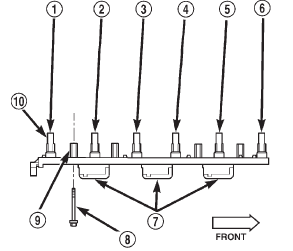
Fig. 21 Ignition Coil Assembly-4.0L 6-Cylinder Engine
2 - CYL. #5
3 - CYL. #4
4 - CYL. #3
5 - CYL. #2
6 - CYL. #1
7 - COILS (3)
8 - MOUNTING BOLTS (4)
9 - BOLT BASES (4)
10 - RUBBER BOOTS (6)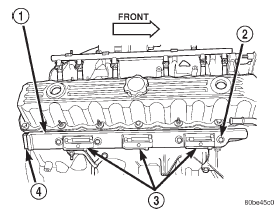
Fig. 22 Ignition Coil Rail Location-4.0L 6-Cylinder Engine
2 - COIL MOUNTING BOLTS (4)
3 - COIL
4 - COIL ELECTRICAL CONNECTION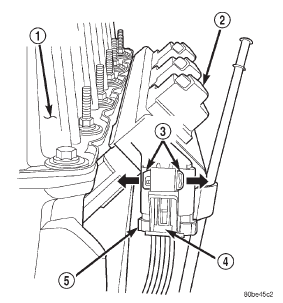
Fig. 23 Ignition Coil Electrical Connector-4.0L 6-Cylinder Engine
2 - COIL RAIL
3 - SLIDE TAB
4 - RELEASE LOCK
5 - COIL CONNECTORCrankshaft position (CKP) sensor
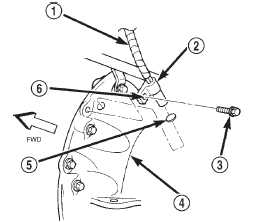
Fig. 24 Crankshaft Position Sensor-One-Bolt Mounting
2 - CRANKSHAFT POSITION SENSOR
3 - MOUNTING BOLT
4 - TRANSMISSION HOUSING
5 - PAPER SPACER
6 - SLOTTED HOLE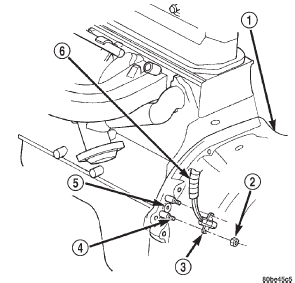
Fig. 25 Crankshaft Position Sensor-Two-Nut Mounting
2 - MOUNTING NUTS (2)
3 - CRANKSHAFT POSITION SENSOR
4 - MOUNTING STUDS (2)
5 - RUBBER GROMMET
6 - SENSOR PIGTAIL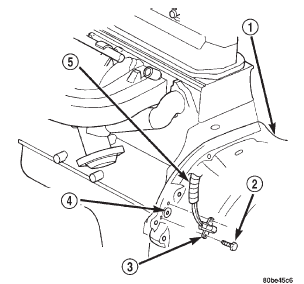
Fig. 26 Crankshaft Position Sensor-Two-Bolt Mounting
2 - MOUNTING BOLTS (2)
3 - CRANKSHAFT POSITION SENSOR
4 - RUBBER GROMMET
5 - SENSOR PIGTAILCamshaft position sensor-2.5L
engine
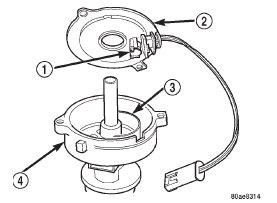
Fig. 27 Camshaft Position Sensor-2.5L Engine
2 - CAMSHAFT POSITION SENSOR
3 - PULSE RING
4 - DISTRIBUTOR ASSEMBLY
 Spark plug cables. Spark plugs. Ignition coil-2.5L engine
Spark plug cables. Spark plugs. Ignition coil-2.5L engine
 Camshaft position sensor-4.0L
engine
Camshaft position sensor-4.0L
engine
Other materials:
Specifications
Frame dimensions
Frame dimensions are listed in millimeter scale.
All dimensions are from center to center of Principal
Locating Point (PLP), or from center to center of PLP
and fastener location (Fig. 6).
Fig. 6 Frame DimensionsFrame torque specifications
DESCRIPTION TORQUE
Front Skid Pl ...
